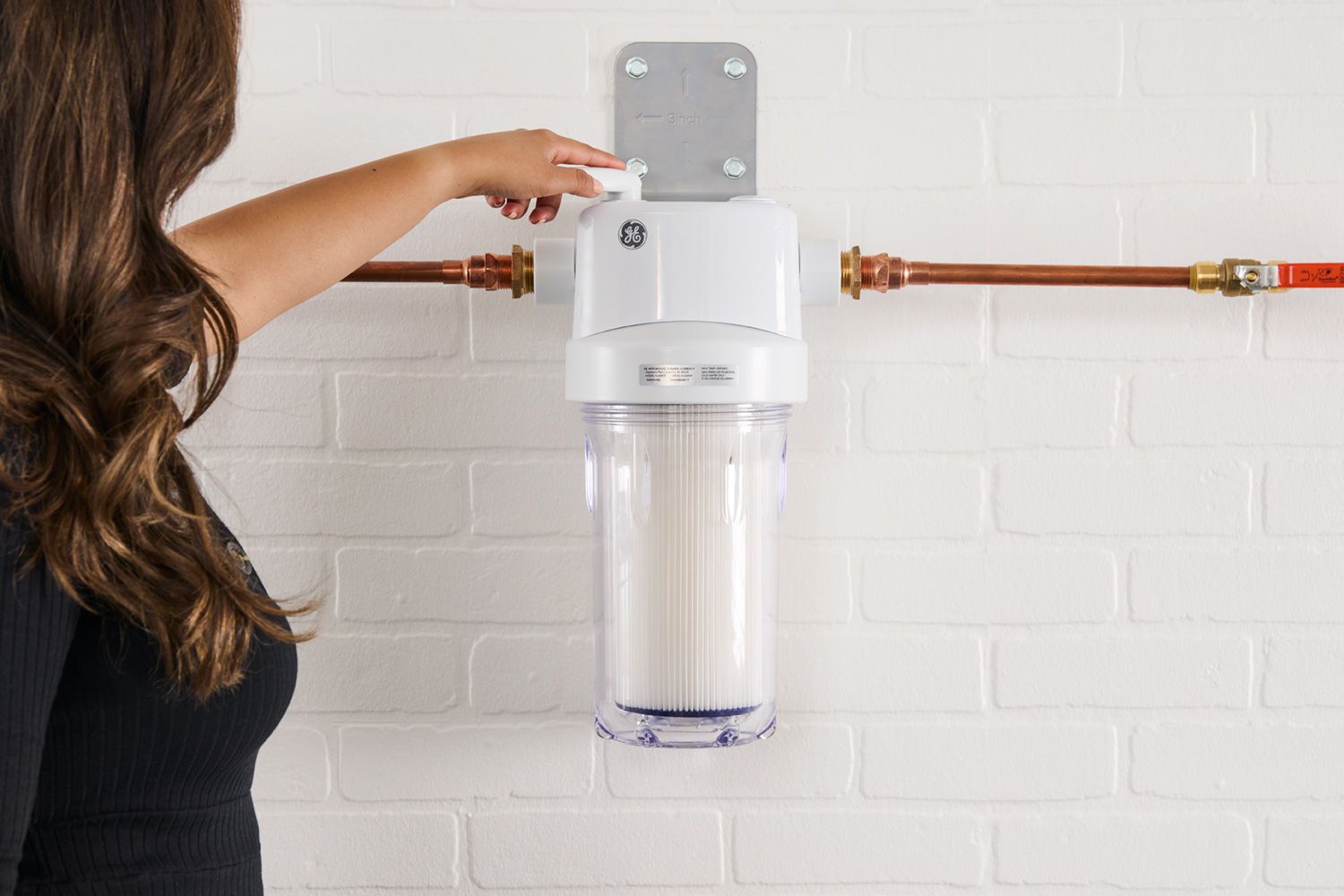
Before it reaches us, most of the water we use for bathing, cooking, drinking, and washing has been treated by different water filters. These water filters protect human health by removing hazardous chemicals and impurities such as pesticides, bacteria, sediment, odours, discolouration, and unpleasant taste.
Whether you’re looking to clean polluted or discoloured drinking water or want to increase the softness and sediment levels of the bathing water, a variety of water filtration systems may help. This guide includes an overview of different types of water filters and how they function to help you choose what’s in your water.
Alkaline and Water Ionisers
Alkaline or ionised water is marketed as one of the healthiest water filtration systems, claiming enhanced bone and digestive health, a lower risk of cancer and heart disease, healthier skin, and even greater moisture and flavour.
Ionised water’s electrically charged minerals separate alkaline water from acidic water, softening it and improving its drinking quality. It is crucial to remember that alkaline ionisers do not have high filtering capabilities. Thus they should be used with other water purifiers.
Ultraviolet Light
UV light is one of the most efficient and safest methods of treating microorganisms in your water, such as protozoa, bacteria, viruses, and parasites. Water is subjected to UV light radiation at a high frequency that passes through a glass element. This filtering technology necessitates the use of electricity and is thus more expensive.
UV lamps as water purifiers perform best at the end of a water treatment system when the water has been thoroughly filtered; the light cannot travel through non-organic pollutants, reducing efficiency.
Ceramic Filters
A ceramic surface’s microscopic holes will catch any substance bigger than the pores, preserving it from your water. These filters are simple to install, use, affordable, and do not need energy. A ceramic water filter coated with silver may also destroy germs and prevent mould and algae growth in your water. They cannot, however, travel faster than they can filter. Therefore they are ineffective at removing viruses.
Activated Alumina
Activated alumina (AA) is an excellent water filter for eliminating fluoride and arsenic. AA is very porous and has a high adsorption capacity, enabling compounds to bind together. It is made of aluminium oxide. As a result, AA is a cost-effective option for eliminating pollutants and metals from polluted water without harming the environment. AA is appropriate for households, industries, water treatment facilities, and hazardous waste cleaning. Its capacity to eliminate hazardous substances is enhanced by its prolonged contact duration.
Sand and Sediment Mesh
A mesh filter functions similarly to a colander in that it helps filter big particles of sand, clay, dirt, and rust from water. They cannot purify or cleanse, but they may prevent sediment accumulation in your plumbing system.
Distillation
Similar to the precipitation cycle, distillation is a very efficient purifying procedure in which water is heated into vapour and then cooled to return to liquid form in a clean container. The method destroys germs while improving the treated water’s taste and odour.
The great thing is that you can finish the distillation process using various countertop equipment, and once finished, you will have safe drinking water. However, the process requires energy or a heat source to function, and it could be more active. Thus, it fails to win in terms of efficiency.
Activated Carbon and Carbon Block
These are often used in residential water filters, such as those found on faucets, beneath sinks, and in water pitchers. They are also known as carbon filters or activated charcoal. Activated carbon filters are very effective in attracting and adsorbing impurities, removing them from water. This substance works without power and is inexpensive; however, it must eliminate minerals and dissolved organic materials.
Reverse Osmosis (RO)
In this approach, water is driven through a semipermeable membrane, which enables water to pass through but not pollutants, parasites, metals, or chemicals. RO water filtration systems are very efficient in removing hazardous impurities from water.
They are, however, more costly than other types of water filters, need high water pressure to work, and waste a lot of water in the purifying process, cleaning just a tiny part of the total water consumed.
How to Choose the Best Water Filters for You
Not every water filtering system can clean your water and eliminate all toxins. We suggest utilising a water test kit to determine what water pollutants you’re dealing with before deciding on the finest water filter for your requirements. Once you’ve identified your primary areas of concern, you may choose a water filter that fits your requirements and improves the water conditions where you need it the most.
Water filters and installation tools should be available at home improvement shops, allowing you to do it yourself. However, suppose you plan on installing a sophisticated filtration system or a whole makeover, such as whole-home water filters and plumbing renovations. In that case, consider hiring a licenced and experienced professional plumber to assist you.
In Summary
Water filtration systems do not come in one size fits all. Learn about the toxins that may be present in the water you drink, and then choose water filtration systems that particularly address your concerns and improve your water preferences.